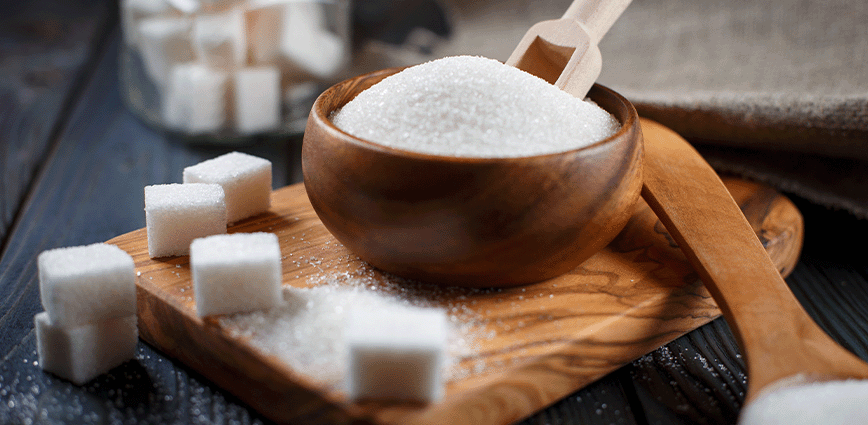
Does Sugar Cause Inflammation?
We all want to feel our best – energetic, vibrant, and free from discomfort. But often, a hidden culprit lurks in our diet, silently fanning the flames of inflammation: sugar. While we often associate inflammation with acute injuries, like a sprained ankle, there's a more insidious type – chronic inflammation – linked to a host of modern health concerns. And mounting evidence points to excess sugar consumption as a key driver.
Let's dive into the science behind the sugar-inflammation connection and explore how smarter sweetness choices can help you reclaim your well-being.
Understanding Inflammation: More Than Just Swelling
Inflammation is your body's natural defense mechanism. When you get a cut, your immune system sends inflammatory cells to heal the wound (acute inflammation). This is beneficial. However, chronic inflammation is different. It's a low-grade, persistent state where the body remains in high alert, potentially damaging healthy tissues over time. This systemic "simmer" is linked to conditions ranging from heart disease and type 2 diabetes to arthritis and cognitive decline.
How Does Sugar Fuel Chronic Inflammation? The Science Explained
While a piece of fruit offers nutrients alongside its natural sugars, the __excessive__ intake of added and refined sugars common in modern diets triggers several pro-inflammatory processes:
- AGEs Production: High blood sugar levels promote the formation of harmful compounds called Advanced Glycation End-products (AGEs). AGEs form when sugar molecules react with proteins or fats. Research indicates these compounds directly stimulate inflammatory pathways, stiffen tissues (like blood vessels), and contribute to oxidative stress – essentially cellular "rust."
- Insulin Resistance & Cytokine Release: Consuming high amounts of sugar causes rapid blood sugar spikes, demanding a large insulin response. Over time, cells can become resistant to insulin's signal. This state, known as insulin resistance, is strongly associated with increased production of pro-inflammatory messengers called cytokines (like TNF-alpha and IL-6). Studies consistently link high-sugar diets to elevated levels of these inflammatory markers.
- Gut Microbiome Disruption: Your gut is home to trillions of bacteria, collectively known as the microbiome. A balanced microbiome is crucial for immune function. Research highlights that high-sugar diets can feed "bad" bacteria, leading to an imbalance (dysbiosis). This can compromise the gut lining ("leaky gut"), allowing bacterial components to enter the bloodstream and trigger a systemic inflammatory response.
- Increased "Bad" Cholesterol & Oxidative Stress: Diets high in added sugars, particularly fructose (often found in processed foods and sugary drinks), are linked to increased levels of LDL ("bad") cholesterol and triglycerides, both of which can contribute to inflammation and cardiovascular risk. Furthermore, the way our body metabolizes large sugar loads can generate excess free radicals, leading to oxidative stress, which itself is a potent trigger for inflammation.
The Sneaky Truth About Hidden Sugars
It's not just the sugar you add to your coffee. Added sugars hide in countless processed foods – sauces, dressings, yogurts, bread, and even seemingly "healthy" snacks. Becoming a label-reader is key to truly reducing your intake.
Sweetness Without the Spark: The Pyure Organic Solution
So, how do you satisfy your desire for sweetness without fueling inflammation? This is where choosing smarter alternatives makes all the difference.
Pyure Organic offers a range of delicious, plant-based sweeteners like:
- Organic Stevia: Zero-calorie, zero-glycemic sweetener derived from the stevia leaf.
- Organic Erythritol: A sugar alcohol with minimal calories that doesn't significantly impact blood sugar or insulin levels.
- Organic Allulose: A rare sugar found naturally in small quantities; it tastes like sugar but has virtually no calories and doesn't raise blood sugar.
- Organic Monk Fruit: A zero-calorie sweetener extracted from the monk fruit, known for its clean, sweet taste.
Why Choose Pyure?
- No Blood Sugar Spike: Unlike sugar, our sweeteners don't cause the dramatic blood sugar and insulin surges that contribute to inflammation.
- Gut Friendly (Generally): While individual sensitivities can vary, sweeteners like stevia and monk fruit are generally considered non-disruptive to the gut microbiome compared to sugar.
- Zero/Low Calorie: Manage weight and reduce metabolic stress associated with excess calorie intake from sugar.
- Deliciously Sweet: Enjoy the sweetness you love in your baking, beverages, and cooking without compromise.
- Organic & Plant-Based: Aligning with your commitment to natural, wholesome ingredients.
Take Control of Your Health
Reducing excess sugar is a powerful step towards lowering chronic inflammation and supporting long-term health. By understanding the science and making informed choices – like swapping out sugar for Pyure Organic sweeteners – you empower yourself to feel better, live healthier, and truly thrive.
Sources:
- https://www.ncbi.nlm.nih.gov/pubmed/24418247
- https://www.ncbi.nlm.nih.gov/pubmed/21677052
- https://www.ncbi.nlm.nih.gov/pubmed/8123778
- https://www.ncbi.nlm.nih.gov/pubmed/18395287
- https://pmc.ncbi.nlm.nih.gov/articles/PMC7284805/
- https://pmc.ncbi.nlm.nih.gov/articles/PMC5986486/
- https://pmc.ncbi.nlm.nih.gov/articles/PMC3704564/

